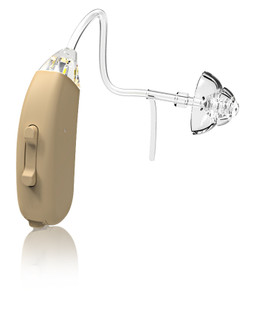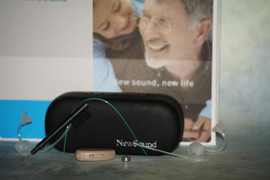Common Reasons for Sensorineural Hearing Loss
May 02, 2022
As one of our most treasured senses, the ability to hear empowers us to connect, interact with the world and helps us lead our everyday lives without limitations. Sudden hearing loss can make conversations fade into whispers and turn music into a dull humming sound.
People with hearing loss may find it challenging to have conversations and respond properly to friends and family. Often, people with severe hearing loss retreat themselves from their social activities as they feel disconnected and at times embarrassed to ask their family and friends to reiterate themselves multiple times.
Are you noticing some changes in your hearing ability? Do you find yourself complaining to people to speak a bit louder? There might be chances you are enduring a hearing loss. One of the common hearing impairment types is Sensorineural hearing loss (SNHL), accounting for about 90% of all the hearing loss cases. Let’s take a look at what is sensorineural hearing loss and its related causes.
What is Sensorineural hearing loss?
Sudden sensorineural hearing loss (SNHL) or Labyrinthine hearing loss, is a functional impairment of the hearing organ (inner ear) as well as a dysfunctional neural component or the nerve connecting to the brain. Problems with the nerve pathways from your inner ear to your brain can also lead to SNHL.
Often, if someone loses the hearing ability suddenly, mostly in one ear, the person is experiencing SNHL. This is why it is also called sudden deafness. Due to this condition, the sound gradually faints or becomes muffled, making it hard to comprehend for the person. A hearing loss that is of 30 DB or greater is termed as SNHL.
SNHL is a serious medical condition and needs immediate medical attention. With the help of hearing aids as well as cochlear implants, people affected by hearing loss can improve communications and their lives.
What are the causes of Sensorineural hearing loss?
SSHL occurs due to injury fo the inner ear or the cochlea in it. It could also happen due to damage to the nerve pathways connecting the brain and the ear. Some of the common causes of ear damage are:
- The Age Factor
Aging is one of the common causes of hearing loss. Approximately, 1/3rd of people between the ages of 65 and 74 have hearing loss issues, and almost one in two those older than 75 have difficulty hearing. Throughout life, everybody loses some of the little ear hair cells in the cochlea, making the hearing ability less sensitive to sound. An SNHL caused due to aging is described as age-related hearing loss or Presbyacusis.
- Prolonged Noise Exposure
Ear hair cells can also be damaged by constant noise exposure. Extended exposure to high-intensity noise at the workplace/home or listening to harsh music louder than 85 decibels (dB) can cause hearing loss. Even noise-induced hearing loss can be caused by exposure to a one-time loud noise, such as an explosion. If you find yourself shouting to make others hear your voice or your ears ring after attending a live concert, you are at risk of noise-induced hearing loss.
- Genetic Issues
Genetic sensorineural hearing loss may affect infants from birth or develop later in life. Genetic factors also make some people more susceptible to hearing loss than others. Inner ear cell plays a vital role in the functioning of hearing senses and any genetic issues in these cells can inhibit them from working properly.
- Congenital and birth-related Hearing Loss
SNHL may also occur if a mother has had rubella (German measles) during pregnancy, or if an infant’s birth weight was low. Some complications during birth, premature birth, and hereditary predispositions may cause the hearing impairment in tots. Using inexpensive hearing aids for babies affected by hearing loss can help them to develop the ability to listen and speak.
- Illness and Medication Effects
Certain viral infections, such as measles, meningitis, circulatory problems, as they may occur in diabetes mellitus, arteriosclerosis, and mumps, can cause sensorineural hearing loss. Even more than 200 medications, including several types of antibiotics, anti-inflammatory medications, cancer chemotherapy drugs like cisplatin and carboplatin, are ototoxic or harmful for your hearing health.
- Head or Acoustic Trauma
You may lose your hearing ability due to head/ear injuries. Head trauma or abrupt changes in air force/pressure can cause the gap containing inner ear fluid to rupture, leading to hearing impairment.
Test your Hearing and Choose an Apt Solution
If you are facing hearing loss or noticing any changes in your hearing ability, you should see an ENT specialist to perform a diagnosis. Once a diagnosis is concluded, you can ascertain the treatment options available for you. If recommended, buy hearing aids that work best for you as per your hearing test results and make necessary lifestyle changes to avoid damaging your hearing health.










